
Covid-19 behavioural insights research
Modelling risk of Covid-19 infection in enclosed settings as part of the Royal Society’s Rapid Assistance in Modelling the Pandemic (RAMP) initiative
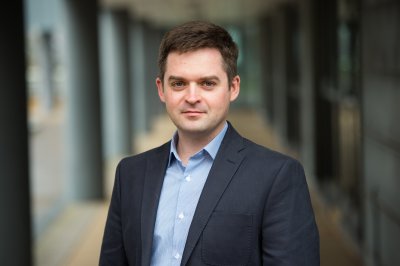
Dr Oleksiy Klymenko (pictured) and Dr Michael Short, in collaboration with PGRs, Ishanki De Mel and Panos Demis, joined the Royal Society’s Rapid Action in Modelling the Pandemic (RAMP) initiative in April. Together with researchers from the Universities of Bath Leeds, they have been developing models that determine risk of Covid-19 infection within enclosed spaces such as offices and public transport. Their models use experimental data from human behaviour, viral survival on surfaces, and transmission via different pathways to assess and guide policies for different environments, including cleaning and how many people should be present in a space and for how long to minimise risk of infection.
Investigating what predicts compliance with rules related to Covid-19 lockdown
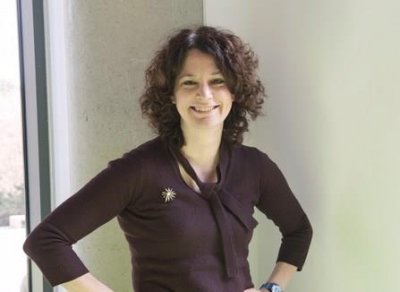
Led by Dr Sonia Ingoglia at the University of Palermo and other colleagues in Italy, Spain, France, and Norway, Dr Harriet Tenenbaum (pictured) is involved in a study to look at what predicts compliance with rules related to lockdown in Italy, Spain, and France. Across over 2,000 participants, social competence and caring in one’s self-schema predict civic engagement and respect for following health-related governmental rules during the Covid-19 pandemic, which, in turn, were associated with trust in public institutions.
Telephone interventions could be used to reduce symptoms of cancer

Telephone interventions have potential to successfully treat symptoms of cancer such as fatigue, depression and anxiety, new research in the Cochrane Library reports. Arguably, this could help patients receive the care they need during the current Covid-19 pandemic when face-to-face access to medical professionals is limited. The research, led by Professor Emma Ream from the School of Health Sciences, addressed the many and varied symptoms experienced by people with cancer that can affect wellbeing and mar quality of life.
Studying risk perceptions associated with Covid-19 in different European and South American countries

Dr Birgitta Gatersleben (pictured) is working with Dr Fátima Bernardo from the Universidade de Évora in Portugal to study risk perceptions associated with Covid-19 in different European (UK, Spain, Portugal, Germany) and South American countries (Brazil, Chile). The study examines whether risk perceptions differ between countries, change over time (due to Government responses) and are related to place attachment. Preliminary findings point to some expected differences, however, in general this global pandemic appears to affect perceptions across the world in similar ways.
Doctoral researcher pauses PhD to return to clinical practice

Duncan Hamilton (pictured), a newly-registered nurse, has continued working in clinical practice on a local respiratory ward. Duncan has co-authored an article in Nursing Standard about ethical practice during the pandemic and acknowledged in an editorial on staff wellbeing in the Journal of Clinical Nursing. Duncan is supervised by Professor Jill Maben and Dr Cath Taylor in the School of Health Sciences.
Doctoral researcher supports national Covid-19 reporting

Postgraduate researcher Steve Falconer (pictured) from the School of Mathematics and Physics is helping the Royal College of GPs’ Research and Surveillance Centre with their weekly communications and respiratory disease reporting during the Covid-19 pandemic. Steve has had to temporarily move to part-time research for his PhD so that he can spend 2 days a week supporting this work. Steve is supervised by Dr Santitissadeekorn Naratip and Dr David Lloyd.
Doctoral researcher contributes to national taskforce on mental health

Emma Wadey (pictured) has temporarily interrupted her PhD write-up to fulfil a role as Clinical Lead for the National Mental health and Learning Disability & Autism COVID-19 response cell, providing clinical advice and oversight. Emma is Head of Mental Health Nursing in NHS England and NHS Improvement and has been supervised by Professor Sara Faithfull and Dr Anne Arber.
Reviewing practices in world cities for dealing with Covid-19
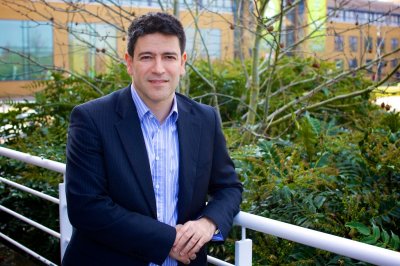
Professor Lampros Stergioulas (pictured) and colleagues from Surrey Business School are reviewing practices in cities around the world in dealing with the Covid-19 crisis. Reviewed issues include social isolation and other wellbeing and psychological effects, supply chains and public information actions. This research aims to produce policy-making recommendations to support evidence-based policy making and informed decision support in dealing with the Covid-19 crisis.
Retail expert investigates measures providers undertake to signal safety to consumers
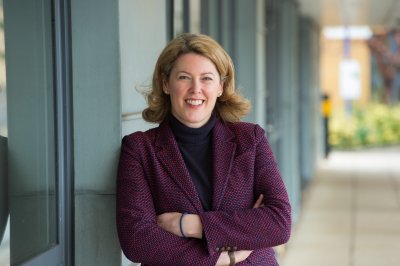
Professor Sabine Benoit studies which measures retailers and service providers undertake to signal safety to their consumers. For this she and her co-author have scanned over 1000 managerial articles and identified 50 distinct measures. They relate to the access to the service environment (e.g. obligation to wear masks or one-in-one-out policies), to the physical environment and tangibles (e.g. one-way systems or virus repellent fabrics) and the staff or other customers (e.g. protective shields or removal of non-essential staff). Signalling theory is used to evaluate the effectiveness of these instruments.
Virtual experiences of travel during lockdown

Professor Caroline Scarles, Drs. Tracy Xu and Daisy Liu and Ms Ayeisha Green are collaborating to investigate how experiences of virtual travel effect wellbeing during lockdown and how these experiences may affect travel planning and decision making going forward as the tourism industry moves into a post-COVID-19 era. This is an ongoing survey and the results will be shared in due course.
Changes in air passenger demand as a result of the Covid-19 crisis
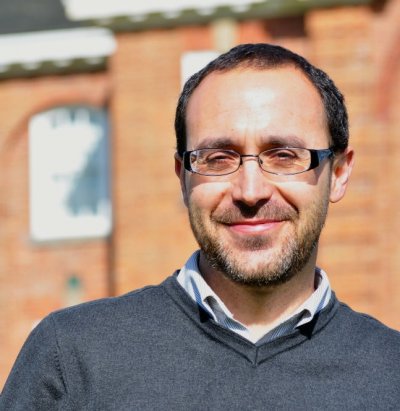
Using data on 5,000 million air passenger searches on Skyscanner, we found that desire to fly in 2020 drop by 50% in Asia and 30% in Europe and the Americas, and intention to fly dropped by a further 20%, while most source markets remain optimistic about air travel during the last quarter of 2020. Professor Xavier Font (pictured) and Dr Inma Gallego developed a methodology to detect the reactivation of tourist markets to help mitigate the effects of the COVID-19 crisis, with a traffic light dashboard that shows how destination managers can use air travel Big Data.
Surrey Living Lab funded Doctoral Researcher investigates the impact of Covid-19 on travel behaviours and perceptions towards remote working
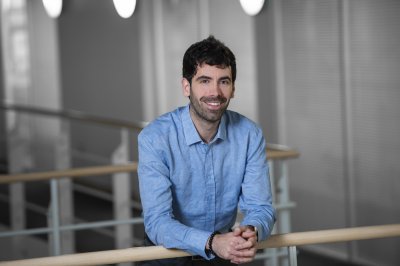
Nicola Andreij Rieg (pictured) is working with Dr Chris Jones and Dr Nikolas Thomopoulos to examine the impact of Covid-19 on habits, attitudes, and norms of University staff regarding travel to work and remote working. The study aims to uncover remote working experiences during lockdown and potential changes in commuting in the short-term and long-term future, and in this way inform new working guidelines towards providing better support for remote working and travel to work.
The impact of positive psychology interventions on well-being during the Covid-19 lockdown
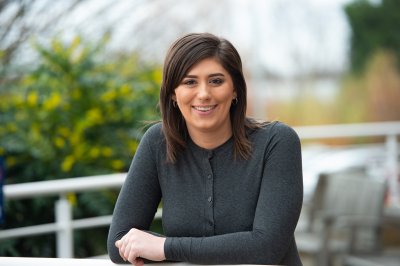
Amelia Dennis (pictured) and Professor Jane Ogden from the School of Psychology are assessing predictors of well-being alongside the effectiveness of positive psychology interventions at increasing well-being under lockdown. In particular, they are exploring whether focusing on the past (through nostalgia), or the present (through gratitude) or the future (through best possible self) is most effective at improving well-being at this time.
Investigating the contribution of lockdown measures during the Covid-19 outbreak
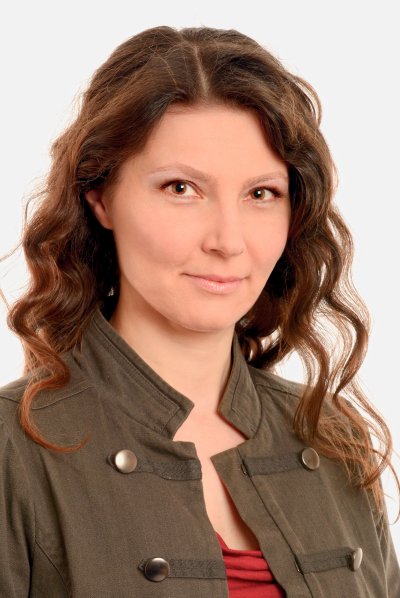
Professor Inga Prokopenko (pictured), Mr Kostiantyn Rudomotkin, Dr Marika Kaakinen and Dr Zhanna Balkhiiarova are investigating the contribution of lockdown measures, including social distancing for prolonged period of time during the Covid-19 outbreak. POSEIDON-PHACT study implements an online questionnaire about individual physical activity and wellbeing . This international multi-centre study already collected data from 625 respondents and will enable the development of preventive measures to maintain individual psycho-physical health.
Tourism recovery, risk and uncertainty
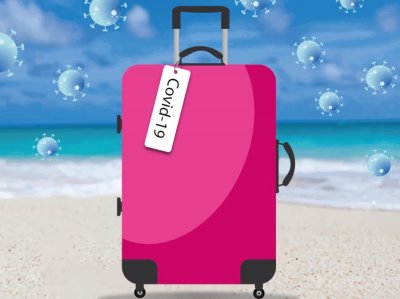
The School of Hospitality and Tourism Management has been awarded an ESRC grant of £175,000 to study how tourism intentions are shaped by Covid-19 risks and uncertainties. Professor Allan Williams, Professor Gang Li and Dr. Jason Chen, together with Professor Vladimir Baláž of the Slovak Academy of Science, will analyse how risk and uncertainty impact on the UK's inbound, outbound and domestic markets. The two-stage project will first analyse a specially commissioned survey of 17,500 potential tourists in the UK and its four main markets: France, Germany, USA and China. This will be followed by experimental research to assess how tourists respond to contrasting future Covid-19 health and containment scenarios.